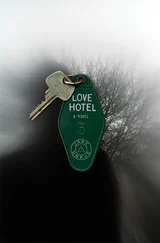They should have laid it out, the gods, for home too: the tariff, some kind of prenup. As it was, we made each other welcome, leaving no messages on the pillows, nothing complimentary but an exchange.
Xenia was an exchange, though Greek hosts paid it forward, their reward held in abeyance, to be claimed at another time, in another place, and possibly by others who were nevertheless their avatars. The Greek gods never stayed in hotels. Having Xenia , hotels were not needed. But a Christian god is now in service. In Christian charity he asks us to give with no expectation of exchange, so someone has to take up the slack.
Hotels take me out of Xenia , out of charity. How relaxing. In a hotel, I can forget the rules, bathe in champagne, throw my TV out the window. No one cares how I behave, so long as I can pay.
When we’d paid it off, I’d go, that’s what I thought. Paid for our home, I mean, the mortgage, then we’d owe each other nothing. But we paid it off, and I didn’t go, not immediately. Then, several months after, I did.
VI
HEIDEGGER
Bridges and hangars, stadiums and power stations are buildings but not dwellings. These buildings house man. He inhabits them and yet does not dwell in them.
A building does not have to be for dwelling. A hotel is not for dwelling in the German sense, though it might be in the English, in the sense of a word that contains its inverse. A hotel is for staying in, but it is a kind of staying that includes its opposite: leaving. We may dwell in a hotel in the English sense, in the sense that while we stay there we might also be stunned, led astray, drugged, or made fools of. We know our stay there is temporary, so we do not think to build our futures there. A home which I inhabit as a building but in which I see no future, so in which I do not dwell, and yet, unlike a hotel, which I cannot easily leave, is no situation I could build on.
It was not easy to leave, and when I left, I looked for other homes, anything so long as they didn’t look like homes. I looked at a houseboat (all I could afford, I thought, or wanted to) but the owner’s cigarette smoke was sunk deep in its timbers. I looked at homes in warehouses, garages, stables; I looked at tiny houses built in corridors between semis, one room on each floor, the bedroom in the loft. In every marital bedroom, in every home I visited, by each marital bed without exception, a shelf of self-help books: sex, relationships, family, money sometimes. By the bed! In some homes, no books elsewhere, except, occasionally, food books in the kitchen. These are the books even people who don’t read books will pay for.
Well, we all need a little self-help. I shouldn’t dwell on it.
VII
In the Library Hotel and Wellness resort in Cypress, which I have not visited, there is a room called the Martin Heidegger room.
Wellness?
FREUD
One need only turn each individual reproach back on the person of the speaker.
The Library Hotel encourages its guests to help themselves.
THE LIBRARY HOTEL
House guests can elevate their spirit while experiencing wellbeing of body and soul at the Wellness Baths designed for total self care.
Most visitors like the Library Hotel. Of those who don’t, some complain that the amenities are poor, but that the service is good. Others like the hotel but blame the staff.
TRIPADVISOR:
(A POST)
Wrote a complaint, no response, these people are amateurs and completely clueless.
VIII
Heidegger did not travel much. But neither did he stay at home. He had a hut on a hill, which looked, to be honest, quite luxurious — more like a chalet, the kind you go to on holiday, with several rooms, and probably some source of heating and somewhere to cook. He worked there and, I think, slept and ate there too. He did not call this home, though. He called it his hut.
TRIPADVISOR: A POST:
I am travelling to Europe this sept and want to make a special effort to go to todtnauberg just to take a look at heidegger’s hut. I know its private property but I would be happy to look at the outside.
Is it better to look at something private from the outside, or the inside? I can’t think in a hotel. There’s nothing there to think about. At home, there are too many things to think about. In order to think properly, it is necessary to be neither here nor there. I don’t have a hut but, if I stayed in the Heidegger room at the Library Hotel, might I be able to dwell there a while and, from there, be able to build on it?
HEIDEGGER
To give thought to homelessness is to take up residence within it.
To dwell is to intend to build, which means I can never quite dwell in the place where I live, at the same time I am living there.
Dwell has at least the intention of building concealed somewhere within it.
So does marriage.
I am trying to wind back time to find a moment we had a home we could dwell in but — dwell, sojourn — these are old-fashioned words. Who uses them anymore? I google Xenia but get photos of bikini’d models. Even on Stanford.edu, she’s a pretty student, not a concept. Perhaps I expected too much of home. Perhaps I have no capacity to do any more than stay.
“In this homogeneous space series are broken and time abolished: a local pleasure is merely the ideal juxtaposition of its historical elements (delicious, luxurious, soft, thick) without their network of reciprocal determinations or their temporal intersection being involved. Luxury is perceived fundamentally in a space of projection without depth, of coincidence without development. There is only one plane and one moment.”1
— MICHEL FOUCAULT, THE BIRTH OF THE CLINIC
Cast:
Sigmund Freud:
a psychoanalyst
Martin Heidegger:
a philosopher
Dora:
a teenage girl
Mae West:
a sex symbol
The White Hotel:
a hotel
The lobby
Nowhere is more lonely; it’s where I’m caught out first. I’m only one of many. It never feels right, that’s the lobby problem. The doors let in the outside for just a moment. I cross a threshold from the hot street air that spills in. The women behind the desk wear shirts and jackets; the guests are in shorts, still sweating. At reception, I wait in one of the tub chairs that take up so little space because there is so little space here. In front of me the lifts come and go. I am excited to see who will come out of them: a thirty-something couple with apologetic shoulders both wearing preppy casual. To the hotel, they are a disappointment. But who could afford such luxury except those who have worked hard enough to care less about how they look. To the hotel, we are all disappointing. Everything is so beautiful, and so strange, how could we ever recognize ourselves here?
Lobby music blooms under our unlikely bodies, at no effort to the musicians, but at some effort to us, listening. It can still move us, stir our misshapen limbs, take hold of us coming back from the bar, drinks in hand, sway us helplessly; a song doesn’t care how we look or when it will catch us again.
FREUD
Vorhof [vestibule], an anatomical term for a particular region of the female genitals.
In the lobby there is a sofa shaped like an enormous pair of lips.
It is called the Mae West sofa.
Surrealist artist Salvador Dalí was fascinated by movie actress Mae West’s mouth. The original Mae West sofa measures 86.5 × 183 × 81.5 centimeters (34 × 72 × 32 inches) and was commissioned from Dalí by Edward James, a British patron of the arts with a particular interest in Surrealism. Surrealism was the art of dreams. In its first manifesto (1924), André Breton claimed that the movement would “resolve the previously contradictory conditions of dream and reality into an absolute reality, a super-reality.”
Читать дальше












